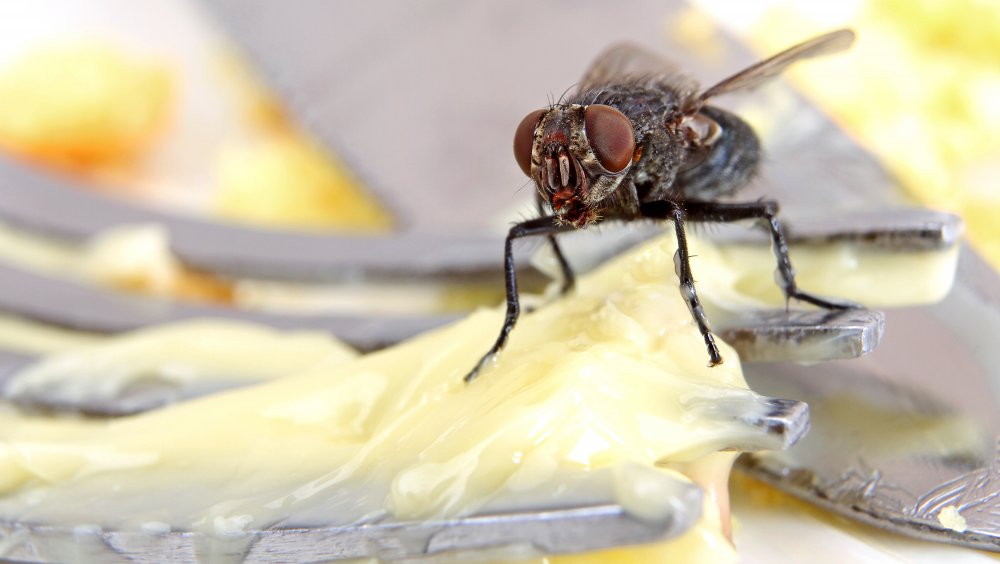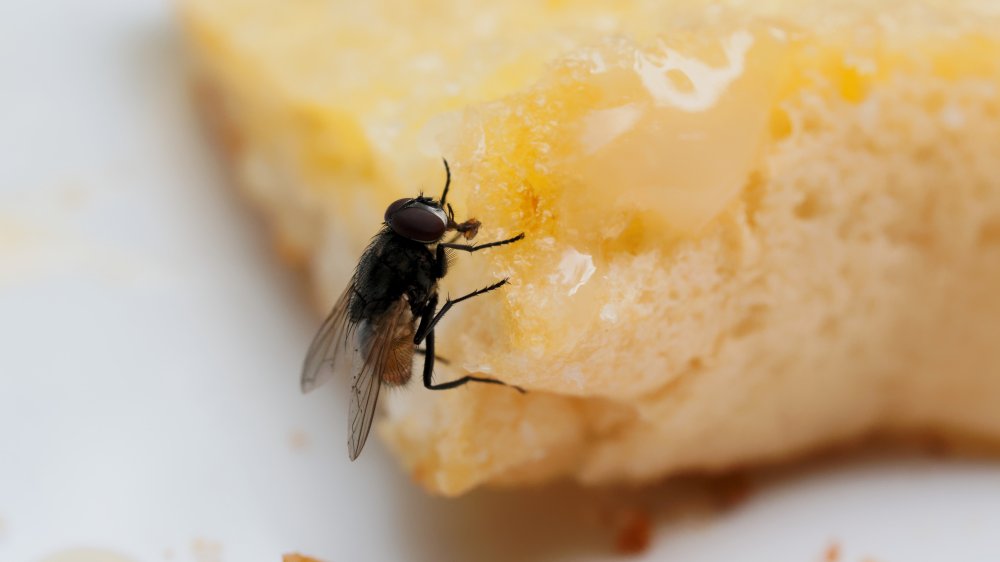Here's Why Scientists Are Turning Bug Fat Into Butter
According to the Ecologist, a 2019 study by researchers at England's University of Leeds and Mexico's University of Veracruz recommends insects as the "food of the future" due to their economic efficiency and environmental sustainability as a large-scale source of protein. But bugs are actually the food of the present and the past. As Live Science points out, people have eaten insects for centuries, and "anytime you see an ingredients list that includes carmine, cochineal extract or natural red 4, you can be sure that there's a little powdered bug therein." That bug is the cochineal, whose crushed remains produce a brilliant red.
Until 2009, crushed cochineal was euphemistically listed as "natural color" to keep people from revolting, which revolted vegetarians absolutely did in 2012 upon discovering that Starbucks used it as a food dye (via NPR). Of course, the USDA permits minuscule percentages of insect parts in food, so they may have been crying over spilled soy milk. The thought of grubs as grub doesn't bug everyone, though. About 2 billion people across the globe actively consume bugs as a desired part of their diet rather than some shameful secret or unsavory accident. It's primarily in Western countries where people squeal and squirm at the thought of mashed up moths in their mouths. But Ghent University in Belgium took a step toward changing that by cooking with bug butter.
I can't believe it's bug butter
Male model Fabio, who can accurately be described as both a chick magnet and a goose magnet, famously proclaimed, "I can't believe it's not butter." But one day a new Adonis may declare, "I can't believe it's bug butter." As Reuters details, Ghent University scientists conducted a study in which they fed participants cakes, cookies, and waffles containing different concentrations of traditional dairy butter blended with the "grayish" fat of fly larvae.
When only a quarter of the butter in baked goods came from fly fat, consumers couldn't taste the difference. At 50 percent bug fat, people noticed a strange, unsavory flavor and stated they wouldn't cough up money for that meal. It's unclear whether any of them coughed up the food for free. But even if insects leave a bad taste in your mouth, when it comes to doing your body good, they may outdo milk. "They are more sustainable because [insects] use less land [than cattle], they are more efficient at converting feed ... and they also use less water to produce butter," researcher Daylan Tzompa Sosa explained.
Insects are packed with protein and vitamins. In fact, their fat is even healthier than the stuff in standard animal products. Tzompa-Sosa told the Brussels Times that it "contains lauric acid, which provides positive nutritional attributes since it is more digestible than butter." Thanks to antimicrobial compounds, bug fat may combat harmful bacteria and fungi.

